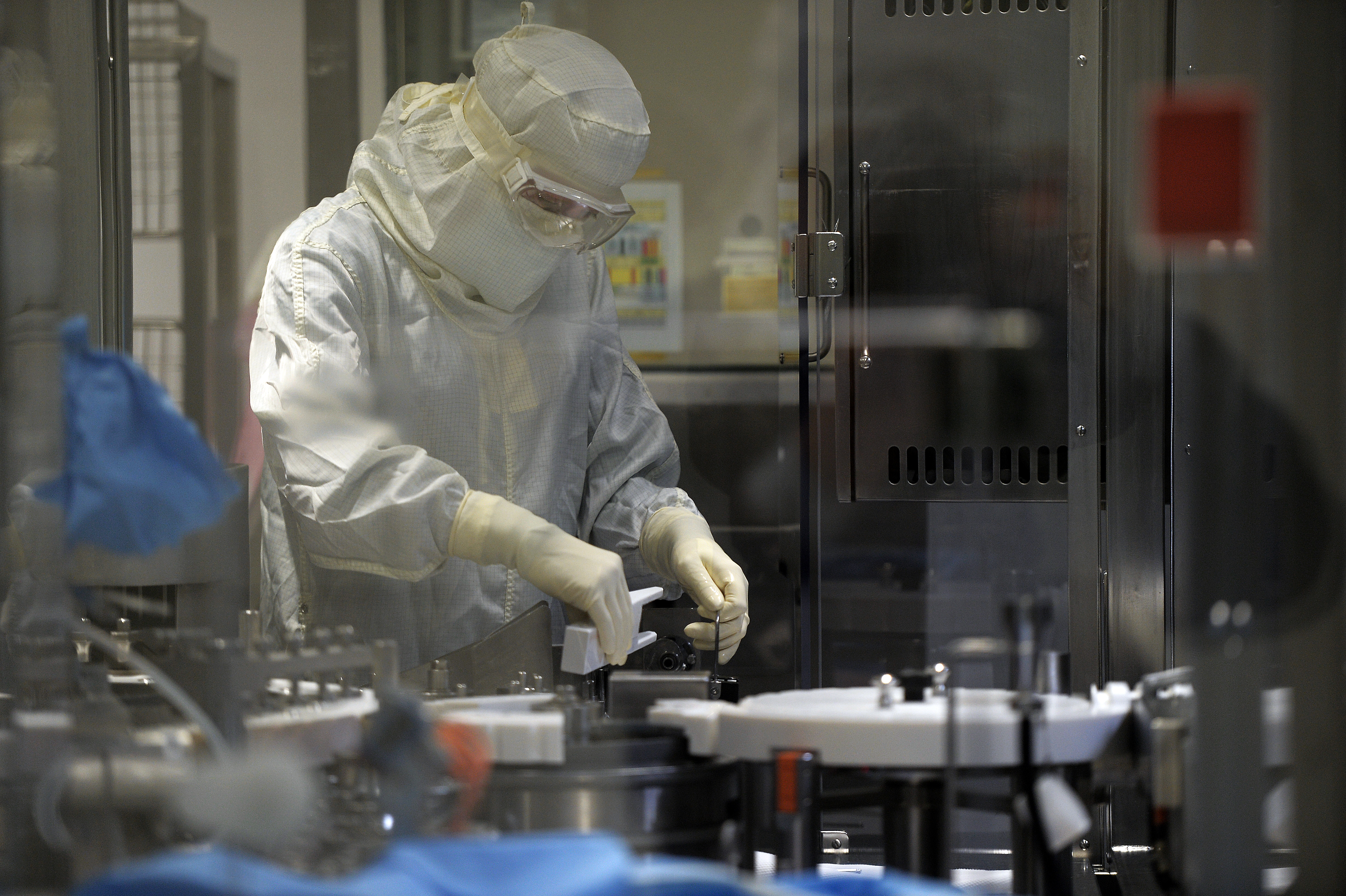Eli Lilly to acquire Loxo Oncology for $8 billion
Workers from Eli Lilly in 2015 at a plant in Fegersheim, France. The pharmaceutical giant will acquire Loxo Oncology for $8 billion. (FREDERICK FLORIN)
New York (AFP) – Pharmaceutical giant Eli Lilly announced Monday it will acquire Loxo Oncology for around $8 billion, the latest big transaction aimed at developing and monetizing new treatments for cancer.
The deal supplements Eli Lilly’s pipeline of cancer-oriented medicines with assets from Loxo, which was incorporated in 2013 and has a number of promising treatments at various stages of development.
Under the terms of Monday’s deal — which follows last week’s $74 billion announced takeover of Celgene by Bristol-Myers Squibb — Eli Lilly will pay $235 per share in cash, or about $8 billion, for Stanford, Connecticut-based Loxo.
The deal, which represents a premium of some 68 percent over Loxo Oncology’s closing share price on Friday, is expected to close by the end of the first quarter, the companies said in a statement.
Shares of Loxo shot up 66 percent to $232.21 in late-morning trading, while Eli Lilly slipped 0.3 percent to $114.33.
“Using tailored medicines to target key tumor dependencies offers an increasingly robust approach to cancer treatment,” said Daniel Skovronsky.
Loxo’s portfolio “creates new opportunities to improve the lives of people with advanced cancer,” he added.
Loxo’s product pipeline is centered on treating patients when there is an inappropriate DNA change that can be discovered through genomic testing. The company aims to develop targeted therapies that can impede the progression of these diseases.
A key driver for the deal because of near-term commercial potential is a treatment for lung, thyroid and some other tumors, Eli Lilly executives said on a conference call.
The treatment was granted the “Breakthrough Therapy” designation by the Food and Drug Administration with a potential launch in 2020, the companies said in the news release.
Eli Lilly executives said the company could still do additional acquisitions in the coming period.
“We’ll continue to look in oncology, as well as other therapeutic areas,” said Eli Lilly Chief Executive David Ricks.
“It just so happens that in oncology there are many more opportunities to look for biotech acquisition and pipeline additions because of how the science is really changing the treatment of cancer and so many venture-backed companies are exploiting that.
“But that doesn’t mean we’ll exclude our other areas of interest either.”
Besides last week’s Bristol-Myers Squibb acquisition, other recent large pharma deals include French company Sanofi’s purchase of US hemophilia group Bioverativ for $11.6 billion and Novartis’ $8.7 billion acquisition of rare-disease treatment company AveXis.
Disclaimer: This story is published from a syndicated feed. Siliconeer does not assume any liability for the above story. Validity of the above story is for 7 Days from original date of publishing. Content copyright AFP.


